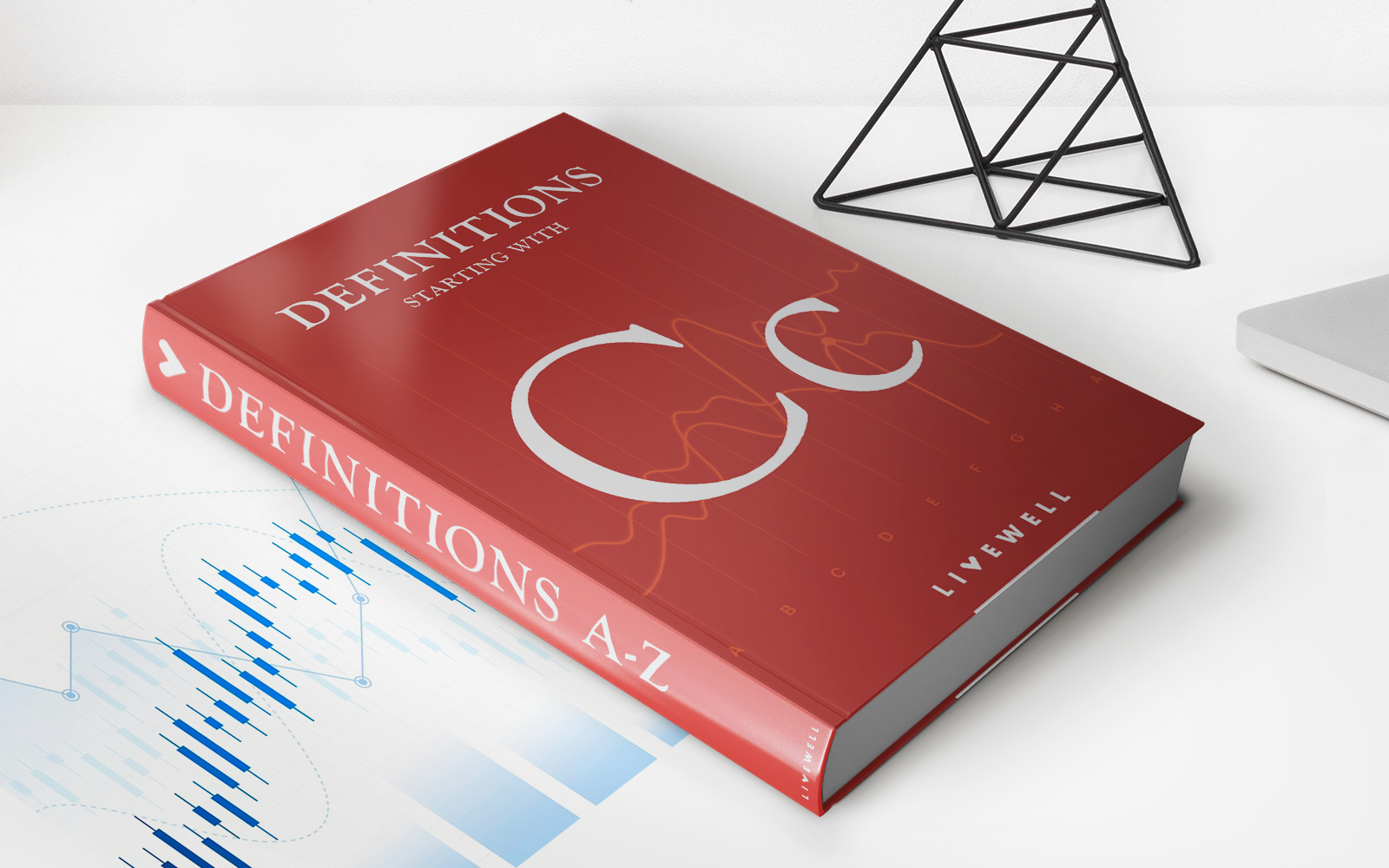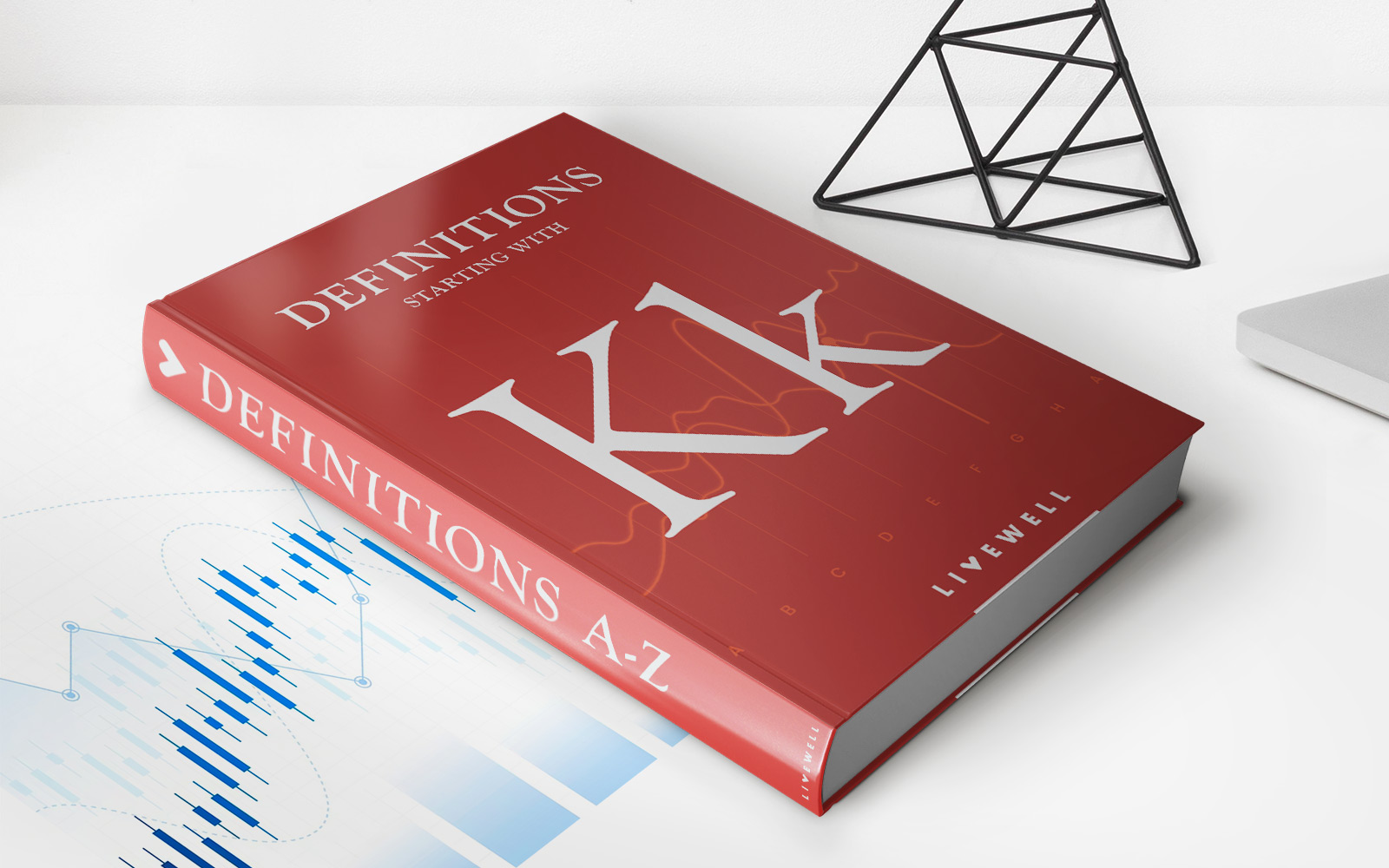

Finance
What Is Insurance Defense Law
Published: November 22, 2023
Learn about insurance defense law and its role in the field of finance. Explore the legal strategies and protections available for insurance companies in this specialized area.
(Many of the links in this article redirect to a specific reviewed product. Your purchase of these products through affiliate links helps to generate commission for LiveWell, at no extra cost. Learn more)
Table of Contents
- Introduction
- Definition of Insurance Defense Law
- Roles and Responsibilities of Insurance Defense Lawyers
- Insurance Defense Law Process
- Common Issues and Challenges in Insurance Defense Law Cases
- Case Studies and Examples of Insurance Defense Law
- Establishing a Defense Strategy in Insurance Defense Cases
- The Role of Insurance Companies in Insurance Defense Law
- Ethical Considerations in Insurance Defense Law
- Conclusion
Introduction
Insurance Defense Law is a specialized area of legal practice that involves representing insurance companies and their policyholders in various legal disputes. It encompasses a wide range of cases, including personal injury claims, property damage claims, professional liability disputes, and insurance coverage disputes.
Insurance defense lawyers play a critical role in these cases, working diligently to protect the interests of their clients and ensure a fair and equitable resolution. They handle all aspects of the litigation process, from conducting investigations and gathering evidence to negotiating settlements and representing their clients in court, if necessary.
Understanding insurance defense law is crucial for insurance companies and policyholders alike. It allows them to navigate the complexities of the legal system and maximize their chances of a favorable outcome in their cases. This article will delve into the world of insurance defense law, exploring its definition, the roles and responsibilities of insurance defense lawyers, the process involved in these cases, common issues and challenges, and the ethical considerations that come into play.
By the end of this article, you will have a comprehensive understanding of insurance defense law and how it operates. Whether you are an insurance professional, a policyholder, or simply curious about the legal concepts surrounding insurance disputes, this article will serve as a valuable resource.
Definition of Insurance Defense Law
Insurance Defense Law refers to the legal practice focused on representing insurance companies and their policyholders in various types of legal disputes. This branch of law deals with cases where an insurance company or policyholder is being sued or has a claim made against them.
Insurance defense lawyers are tasked with defending the interests of their clients and ensuring that they are protected against any potential financial losses resulting from legal claims. They work closely with insurance companies and policyholders to provide legal advice, investigate claims, gather evidence, negotiate settlements, and represent their clients in court proceedings, if necessary.
Insurance defense law can cover a wide range of matters, including personal injury claims, product liability claims, property damage claims, professional malpractice disputes, and insurance coverage disputes. These cases can involve individuals, businesses, or other entities seeking compensation for injuries, damages, or losses allegedly caused by the insured party.
It is important to note that insurance defense law differs from plaintiff’s personal injury law, where lawyers represent individuals who have been injured and seek compensation from the responsible party. In insurance defense, lawyers actively work to protect the interests of the insurance company or policyholder being sued.
Insurance defense lawyers need to possess a deep understanding of insurance law, contract law, negligence law, and other relevant legal principles. They must stay updated on changes in legislation, court decisions, and industry practices to provide effective representation. Strong research, negotiation, and litigation skills are essential in this field to build a solid defense strategy and achieve the best possible outcome for their clients.
Overall, insurance defense law plays a crucial role in maintaining the integrity of insurance contracts and ensuring that insurance companies and policyholders are protected from unjust or excessive claims. It safeguards against fraudulent or frivolous lawsuits, while also ensuring fair compensation for legitimate claims.
Roles and Responsibilities of Insurance Defense Lawyers
Insurance defense lawyers have a diverse range of roles and responsibilities when representing insurance companies and their policyholders in legal disputes. They are instrumental in developing a strong defense and protecting the interests of their clients throughout the litigation process.
Here are some key roles and responsibilities of insurance defense lawyers:
- Legal Counsel: Insurance defense lawyers provide legal counsel to insurance companies and policyholders, offering advice and guidance on legal matters related to their cases. They analyze the specific details of each situation, assess the strengths and weaknesses of the case, and advise clients on the best course of action.
- Investigation: Insurance defense lawyers conduct thorough investigations to gather evidence and facts pertaining to the case. This involves reviewing documents, interviewing witnesses, hiring expert witnesses if necessary, and examining any other relevant information that can support the defense strategy.
- Defense Strategy Development: Based on their investigations and analysis, insurance defense lawyers develop a strong defense strategy tailored to the specific case. They identify potential legal arguments, evaluate the validity of the opposing party’s claims, and determine the most effective approach to protect their client’s interests.
- Discovery: Insurance defense lawyers engage in the discovery process, which entails exchanging information and evidence with the opposing party. They review and respond to requests for documents, interrogatories, and requests for admissions. They may also depose witnesses and participate in settlement negotiations, mediation, or arbitration hearings.
- Litigation: If a satisfactory settlement cannot be reached, insurance defense lawyers represent their clients in court proceedings. They advocate for their clients’ positions, present evidence, cross-examine witnesses, and argue legal interpretations to support the defense. Throughout the trial process, they strive to secure a favorable verdict on behalf of their clients.
- Negotiation and Settlement: Insurance defense lawyers engage in negotiations with the opposing party or their legal representatives to reach a fair and reasonable settlement. They use their expertise in negotiation and understanding of the case’s strengths and weaknesses to achieve the best outcome for their clients, considering factors such as potential financial exposure, reputation, and risk management.
- Client Communication: Insurance defense lawyers maintain clear and effective communication with their clients, keeping them informed about the progress of their case, legal developments, and potential strategies. They provide regular updates, answer questions, and address any concerns that may arise throughout the litigation process.
Insurance defense lawyers play a vital role in protecting the legal rights and financial interests of insurance companies and policyholders. By diligently fulfilling their roles and responsibilities, they ensure that their clients receive competent and effective legal representation throughout the entire litigation process.
Insurance Defense Law Process
The insurance defense law process involves a series of steps that insurance defense lawyers follow to represent insurance companies and policyholders in legal disputes. These steps help ensure a comprehensive defense strategy is developed and implemented effectively. While the specifics may vary depending on the case, the general process typically includes the following stages:
- Initial Case Evaluation: Insurance defense lawyers begin by evaluating the case to understand the nature of the claim or lawsuit being brought against their client. They review the facts, gather relevant documents, and assess the legal merits and potential defenses to develop a preliminary understanding of the situation.
- Investigation: In this stage, insurance defense lawyers conduct a thorough investigation to gather evidence, interview witnesses, and collect documentation that supports their defense strategy. They analyze the evidence and determine its relevance to the case, using it to identify potential legal arguments and strengthen their client’s position.
- Discovery: Discovery is a process where both sides exchange information and evidence relevant to the case. Insurance defense lawyers respond to requests for documents, participate in depositions (taking statements under oath from witnesses), and engage in other discovery activities to collect information needed to build their defense.
- Legal Analysis and Strategy Development: Based on the information gathered during the investigation and discovery phase, insurance defense lawyers analyze the strengths and weaknesses of the case and develop a defense strategy. This strategy may involve identifying legal arguments, evaluating the credibility of opposing witnesses, and determining the best course of action to protect their client’s interests.
- Settlement Negotiation: If appropriate, insurance defense lawyers engage in settlement negotiations with the opposing party or their legal representatives. They present their defense strategy and use their negotiation skills to reach a fair and reasonable settlement that minimizes potential financial exposure for their client.
- Mediation/Arbitration: If a settlement cannot be reached, insurance defense lawyers may participate in alternative dispute resolution processes such as mediation or arbitration. In these processes, a neutral third party helps facilitate a resolution between the parties involved. Insurance defense lawyers represent their clients’ interests during these proceedings.
- Court Proceedings and Trial: If all other attempts at resolution have been unsuccessful, insurance defense lawyers proceed to represent their clients in court proceedings. They present evidence, examine witnesses, cross-examine opposing witnesses, and argue legal interpretations to support their client’s defense. The ultimate goal is to secure a favorable verdict on behalf of their client.
- Appeals: In cases where the outcome is unfavorable, insurance defense lawyers may pursue appeals on behalf of their clients. They research case law, draft legal briefs, and present arguments to appellate courts to challenge the lower court’s decision and seek a reversal or modification of the ruling.
The insurance defense law process requires thorough investigation, strategic analysis, and effective advocacy skills. Insurance defense lawyers navigate through each stage of the process, adapting their strategies as necessary, to protect the interests and legal rights of their clients.
Common Issues and Challenges in Insurance Defense Law Cases
Insurance defense law cases present unique challenges and complexities that insurance defense lawyers must navigate. Understanding these common issues can help both insurance companies and policyholders better comprehend the intricacies involved in these legal disputes.
Here are some of the common issues and challenges frequently encountered in insurance defense law cases:
- Policy Interpretation: One of the primary challenges in insurance defense law is interpreting the insurance policy itself. Insurance policies can be complex, with specific terms, conditions, and exclusions that need to be carefully analyzed to establish coverage or lack thereof. Insurance defense lawyers must thoroughly review and interpret the policy language to determine the extent of the insurer’s obligations.
- Coverage Disputes: Disputes over coverage often arise in insurance defense cases. Policyholders may argue that their claim falls within the scope of coverage, while insurance companies may assert that certain exclusions or limitations apply. Insurance defense lawyers must navigate these disputes and provide persuasive arguments to support their clients’ positions.
- Proving Negligence or Liability: In cases involving personal injury, property damage, or professional malpractice, insurance defense lawyers face the challenge of proving that the insured party is not at fault or not liable for the alleged damages. They must present evidence and expert opinions to counter the plaintiff’s claims and demonstrate that their client exercised reasonable care or did not breach professional standards.
- Evidence Collection and Preservation: Gathering and preserving relevant evidence is crucial in insurance defense law cases. Insurance defense lawyers must ensure that key evidence, such as accident reports, medical records, or expert opinions, is collected promptly and preserved properly. Failure to do so may weaken the defense and jeopardize the client’s position.
- Difficulties with Witnesses: In insurance defense cases, witnesses can play a significant role in establishing or disputing liability or damages. However, witnesses may be uncooperative, provide conflicting testimonies, or fail to recall crucial details. Insurance defense lawyers must diligently interview and prepare witnesses to present their testimony effectively in court or during settlement negotiations.
- Managing Settlement Expectations: Insurance defense lawyers often grapple with managing their client’s expectations regarding settlements. Insurance companies may prefer early settlement to avoid lengthy and costly litigation, but policyholders may have unrealistic expectations regarding the settlement amount. Balancing these expectations and negotiating a fair settlement can pose a challenge for insurance defense lawyers.
- Complex Legal and Regulatory Environment: Insurance defense lawyers must stay updated on the constantly evolving legal and regulatory landscape. Changes in laws, court decisions, and industry practices can impact the defense strategy. Remaining knowledgeable about these developments is essential for insurance defense lawyers to provide effective representation.
- Time and Cost Management: Insurance defense cases can be time-consuming and involve significant expenses. Insurance defense lawyers must efficiently manage their caseload, meet deadlines, and control costs, all while ensuring diligent and thorough representation of their clients. This requires effective time management, budgeting, and coordination with clients and other stakeholders.
Successfully navigating these challenges requires the expertise, experience, and strategic approach of insurance defense lawyers. By being aware of these common issues, insurance companies and policyholders can work closely with their legal representatives to develop a robust defense and achieve the best possible outcome in insurance defense law cases.
Case Studies and Examples of Insurance Defense Law
Examining real-life case studies and examples can provide valuable insights into the workings of insurance defense law and the challenges faced by insurance defense lawyers. Here are a few noteworthy cases:
- Auto Accident Liability: In a case involving a multi-vehicle accident, an insurance defense lawyer successfully defended their client, a driver who was accused of causing the collision. Through a thorough investigation, the lawyer uncovered evidence that another driver involved in the accident was at fault due to distracted driving. The lawyer presented this evidence in court, demonstrating the client’s lack of liability, ultimately leading to a favorable verdict.
- Medical Malpractice Defense: In a medical malpractice lawsuit, an insurance defense lawyer represented a healthcare provider accused of negligence. The lawyer meticulously reviewed medical records, consulted expert witnesses, and prepared a compelling defense strategy. By challenging the plaintiff’s claims and presenting evidence of proper medical practices, the lawyer successfully defended their client and obtained a dismissal of the lawsuit.
- Product Liability Dispute: In a product liability case, an insurance defense lawyer defended a manufacturing company against allegations of a defective product. The lawyer conducted extensive research and investigation to determine the cause of the alleged defects. By presenting evidence that the product was used improperly or modified after purchase, the lawyer successfully demonstrated that the manufacturer was not liable for the injuries sustained by the plaintiff.
- Professional Liability Claim: In a professional liability case, an insurance defense lawyer represented a real estate agent accused of providing misleading information to a client. The lawyer meticulously reviewed contracts, communications, and industry standards to build a robust defense. By demonstrating the agent’s adherence to professional standards and providing evidence of accurate disclosures, the lawyer successfully defended the agent against the claims of professional negligence.
- Insurance Coverage Dispute: In an insurance coverage dispute, an insurance defense lawyer represented an insurance company challenged by a policyholder regarding coverage for property damage. The lawyer carefully analyzed the insurance policy language, identified applicable exclusions, and argued that the claimed damages were not covered. Through skillful negotiation, the lawyer successfully resolved the dispute and protected the interests of the insurance company.
These case studies highlight the diverse nature of insurance defense law and the critical role that insurance defense lawyers play in protecting the interests of their clients. Each case required extensive research, investigation, legal expertise, and strategic thinking to navigate through complex legal issues and obtain favorable outcomes.
As these examples demonstrate, insurance defense lawyers work diligently to analyze the facts, gather evidence, and develop compelling arguments to defend against claims, establish liability, and ensure fair and just outcomes for their clients in insurance defense law cases.
Establishing a Defense Strategy in Insurance Defense Cases
In insurance defense cases, establishing a strong defense strategy is crucial to protect the interests of insurance companies and policyholders. A well-crafted defense strategy can help mitigate liability, challenge claims, and achieve favorable outcomes. Here are key steps in establishing a defense strategy:
- Thorough Case Evaluation: Insurance defense lawyers begin by conducting a comprehensive evaluation of the case. They carefully review the facts, examine relevant documents, and analyze the legal claims made against their client. This evaluation helps in identifying key issues and potential defenses.
- Gather Evidence: Obtaining sufficient evidence is essential in building a strong defense. Insurance defense lawyers conduct thorough investigations, collect documents, interview witnesses, and consult experts, if necessary. Gathering diverse and credible evidence helps challenge the opposing party’s claims, establish alternate theories, or prove the absence of liability.
- Legal Analysis: Insurance defense lawyers analyze the applicable laws, regulations, and case precedents to identify possible defenses. They evaluate the strengths and weaknesses of the case, determining the most effective legal arguments to present in defense of their client. A deep understanding of insurance law, contract law, and relevant legal principles is imperative for this analysis.
- Expert Consultation: In complex cases, insurance defense lawyers may seek opinions from experts to strengthen their defense strategy. Experts in fields such as medicine, engineering, or accident reconstruction can provide specialized knowledge and opinions that support the defense theory.
- Preparation of Witnesses: Insurance defense lawyers interview and prepare witnesses to present their testimony effectively. This involves conducting mock examinations, identifying potential weaknesses in the opposing party’s witness testimonies, and strategizing the line of questioning. Well-prepared witnesses can provide valuable information and help challenge the opposing party’s claims.
- Negotiation and Settlement: Insurance defense lawyers engage in settlement negotiations to reach a favorable resolution for their clients. They use their expertise in negotiation and understanding of the case’s strengths and weaknesses to achieve the best possible outcome. This may involve exploring alternative dispute resolution methods, such as mediation or arbitration, to resolve the dispute without going to trial.
- Preparing for Trial: If a settlement cannot be reached, insurance defense lawyers prepare for trial by organizing the evidence, drafting legal arguments, and developing a persuasive narrative for the defense. They anticipate the opposing party’s arguments and create a compelling case that challenges their claims and establishes the strength of the defense position.
- Courtroom Advocacy: During the trial, insurance defense lawyers present evidence, examine witnesses, cross-examine opposing witnesses, and argue legal interpretations to support the defense. They effectively communicate the defense strategy to the judge or jury and counter the opposing party’s arguments with persuasive reasoning and evidence.
Establishing a defense strategy in insurance defense cases requires a comprehensive understanding of the facts, legal principles, and the ability to analyze and present complex information effectively. Insurance defense lawyers work diligently to ensure a robust defense, protect their client’s interests, and advocate for a favorable outcome in these cases.
The Role of Insurance Companies in Insurance Defense Law
In insurance defense law, insurance companies play a vital role in the legal process. As the primary stakeholders in the cases, insurance companies have specific responsibilities and contributions throughout the defense process. Here are key aspects of their role:
- Policy Provision: Insurance companies provide insurance policies to policyholders, outlining the coverage and terms of the insurance contract. These policies serve as the foundation for insurance defense cases, as they determine the extent of coverage and the obligations of the insurer.
- Assigning Legal Representation: When a claim or lawsuit is filed against a policyholder, insurance companies typically assign insurance defense lawyers to represent their insured party’s interests. These lawyers work closely with insurance company representatives to build a strong defense strategy.
- Financial Responsibility: Insurance companies bear the financial responsibility for the defense costs and any potential judgments or settlements in insurance defense cases. They contribute to the legal fees, expert fees, and other expenses associated with defending the insured party. The insurance policy’s limits and coverage determine the extent of financial responsibility.
- Policy Interpretation: Insurance companies, through their claims adjusters and legal teams, interpret the insurance policy regarding coverage and exclusions. They analyze the policy and provide guidance to insurance defense lawyers on the extent of coverage and any potential limitations that may affect the defense strategy.
- Settlement Negotiation: Insurance companies often play a significant role in settlement negotiations in insurance defense cases. They work closely with insurance defense lawyers to evaluate the strengths and weaknesses of the case, assess potential financial exposure, and provide guidance on settlement amounts. The ultimate decision to settle or proceed to trial rests with the insurance company.
- Providing Information and Records: Insurance companies have access to key information and records related to the insured party and the insurance policy. They work with insurance defense lawyers to provide necessary documents, such as the insurance policy, claim files, and previous correspondence, which are essential for building a strong defense strategy.
- Collaboration with Legal Defense: Insurance companies collaborate closely with insurance defense lawyers throughout the defense process. They provide instructions, guidance, and insights based on their experience handling similar cases. Collaboration between insurance representatives and insurance defense lawyers helps streamline communication and ensures a coordinated defense effort.
- Final Decision-Making: Insurance companies play a crucial role in making final decisions regarding settlement offers, trial strategy, and case resolution. They consider factors such as the potential financial impact, the insured party’s interests, and the overall risk management objectives of the company. Insurance defense lawyers provide recommendations, but the ultimate decision rests with the insurance company.
Overall, insurance companies have a significant role in insurance defense law cases. They provide insurance coverage, assign legal representation, bear the financial responsibility, and collaborate closely with insurance defense lawyers throughout the defense process. By working together, insurance companies and insurance defense lawyers aim to protect the interests of policyholders and ensure that their rights are defended in legal disputes.
Ethical Considerations in Insurance Defense Law
Ethics is a fundamental aspect of the practice of law, including insurance defense law. Insurance defense lawyers must navigate various ethical considerations to ensure fairness, integrity, and adherence to professional standards. Here are important ethical considerations in insurance defense law:
- Conflict of Interest: Insurance defense lawyers must ensure they do not have any conflicts of interest that could compromise their ability to represent their clients effectively. They must promptly disclose any potential conflicts and take appropriate steps to address them, such as obtaining informed consent or withdrawing from representation if necessary.
- Confidentiality and Attorney-Client Privilege: Insurance defense lawyers have a duty to protect the confidentiality of their clients’ information. They must maintain strict confidentiality and adhere to attorney-client privilege rules, only disclosing information when authorized or required by law.
- Truthfulness and Candor: Insurance defense lawyers have an obligation to be truthful and honest in their dealings with clients, opposing parties, witnesses, and the court. They must not present false or misleading information and must accurately represent the facts and legal arguments to the best of their knowledge.
- Professional Competence: Insurance defense lawyers must possess the necessary knowledge, skills, and experience to handle insurance defense cases competently. They should stay informed about changes in laws, regulations, and legal practices, continuously develop their legal expertise, and provide diligent representation to their clients.
- Fairness and Impartiality: Insurance defense lawyers are obligated to act in a fair and impartial manner, respecting the rights and dignity of all parties involved in the case. They should avoid discriminatory practices and treat all individuals with respect and professionalism, regardless of their background or circumstances.
- Zealous Advocacy: Insurance defense lawyers have a duty to zealously advocate for their clients’ interests within the bounds of the law. However, they must exercise their advocacy responsibly, ensuring that their actions do not infringe upon the rights of others or undermine the administration of justice.
- Disclosure of Relevant Information: Insurance defense lawyers have an ethical duty to disclose all relevant information, both favorable and unfavorable, to their clients. They must provide complete and accurate information, enabling clients to make informed decisions about their cases and potential resolutions.
- Ethical Handling of Settlements: Insurance defense lawyers must handle settlement negotiations with honesty, integrity, and fairness. They should not engage in unethical tactics to coerce or mislead opposing parties into accepting unfair settlement offers. The terms of settlement should be communicated clearly, ensuring the client’s understanding and consent.
- Professionalism and Respect: Insurance defense lawyers should maintain professionalism, courtesy, and respect in all interactions with clients, opposing counsel, witnesses, and the court. They should adhere to the highest ethical and professional standards, promoting the integrity of the legal profession.
By adhering to these ethical considerations, insurance defense lawyers uphold the principles of integrity, fairness, and justice. They ensure that their advocacy serves their clients’ best interests while maintaining the highest standards of professionalism and ethical conduct in their practice of insurance defense law.
Conclusion
Insurance Defense Law is a specialized area of legal practice that plays a crucial role in protecting the interests of insurance companies and policyholders in various legal disputes. Throughout this article, we have explored the definition of insurance defense law, the roles and responsibilities of insurance defense lawyers, the insurance defense law process, common issues and challenges, case studies, the role of insurance companies, and ethical considerations.
Insurance defense lawyers work diligently to develop strong defense strategies, gather evidence, and advocate for their clients in negotiations or court proceedings. They navigate complex legal principles, interpret insurance policies, and analyze the facts to ensure the best possible outcome for their clients. Their role encompasses legal counsel, investigation, defense strategy development, negotiation, and courtroom advocacy.
Insurance defense law cases present various challenges, such as policy interpretation, coverage disputes, proving liability, managing evidence, and time management. Understanding these challenges is crucial for insurance companies and policyholders to effectively navigate the defense process.
Real-life case studies have provided insights into the application of insurance defense law in practice. These examples showcased successful defense strategies in auto accidents, medical malpractice, product liability disputes, professional liability claims, and insurance coverage disputes.
Insurance companies also play a pivotal role in insurance defense law cases. They provide insurance coverage, assign legal representation, bear the financial responsibility, and collaborate closely with insurance defense lawyers throughout the defense process. Their involvement ensures the protection of the insured party’s interests and the proper management of the defense strategy.
Ethical considerations underpin the practice of insurance defense law, emphasizing the importance of conflict of interest disclosure, confidentiality, truthfulness, fairness, competence, and professionalism. By upholding these ethical standards, insurance defense lawyers maintain the integrity of the legal profession and advocate effectively for their clients.
In conclusion, insurance defense law is a multifaceted field that requires legal expertise, strategic thinking, and ethical conduct. Insurance defense lawyers play a crucial role in ensuring a fair and equitable resolution of legal disputes, protecting the interests of insurance companies and policyholders throughout the defense process.














